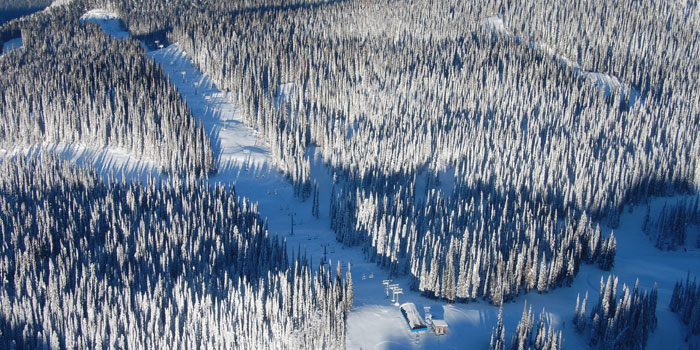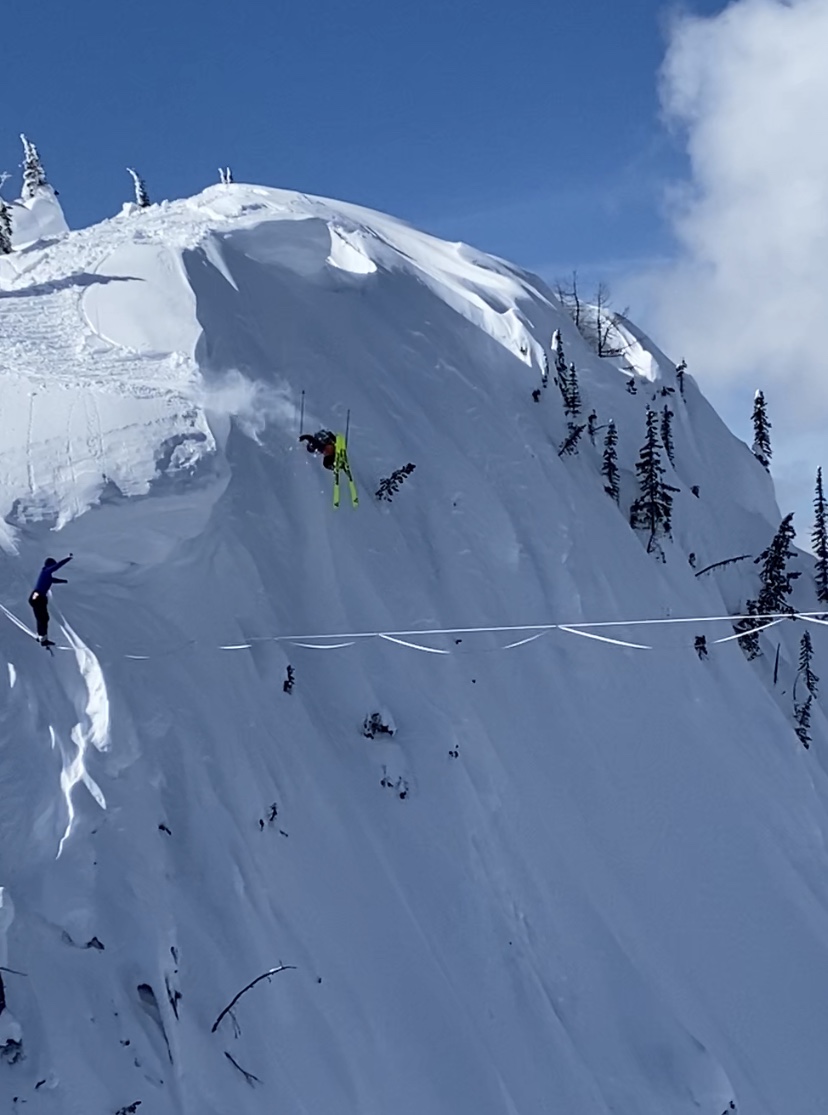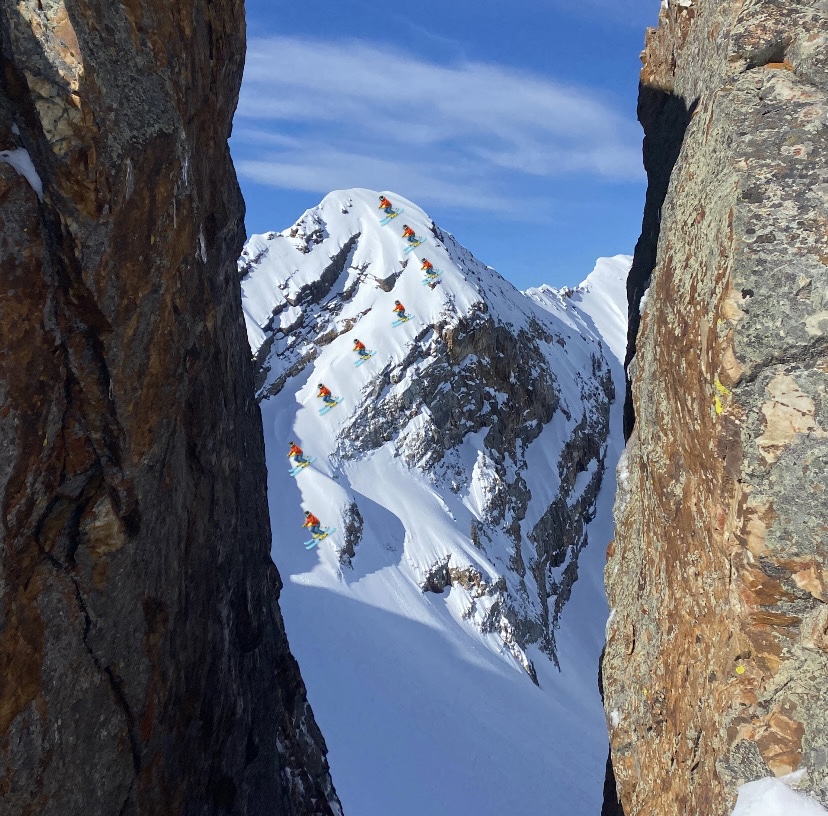
Vail Resorts last week reported results for the second quarter of fiscal 2023, which ended January 31, 2023, and provided the Company’s ski season-to-date metrics through March 5, 2023.
Vail Resorts revealed in the previous quarter’s results that it had sold 2.3 million Epic Pass products for the 2022/23 season, which is up by 6% over last year. Skier visits for 2022/23 up to March 5th, 2023, are up 3.6% on last year.
- Net revenue was $1,101.7 million, an increase of $195.2 million over the same quarter last year.
- Lift revenue was $592.6 million for the three months to Jan 31st, an increase of 13.6% over the same period last year.
- Ski school revenue increased 34.1%.
- Dining revenue increased 58.8%.
- Has $1.3 billion cash on hand
The company were pleased with this quarter’s results. Compared to last year, resort revenue increased 21% and it achieved record second quarter visitation numbers.
“Overall we are pleased with the strong guest experience being delivered at our resorts, supported by the investments we made in our resorts and in our employees, which enabled greatly improved staffing levels and employee satisfaction scores, a return to normal operations and strong guest satisfaction scores. Our ancillary businesses, including ski school, dining, and retail/rental, experienced strong growth compared to the prior year period, when staffing shortages constrained capacity of ancillary businesses. We believe these investments in staffing and our commitment to enhancing the guest experience establish a strong foundation for future growth.”
– Kirsten Lynch, CEO
The full press release is below:
Highlights
- Net income attributable to Vail Resorts, Inc. was $208.7 million for the second fiscal quarter of 2023 compared to net income attributable to Vail Resorts, Inc. of $223.4 million in the same period in the prior year.
- Resort Reported EBITDA was $394.8 million for the second quarter of fiscal 2023, which included $0.3 million of acquisition and integration-related expenses. In the same period in the prior year, Resort Reported EBITDA was $397.9 million, which included $2.6 million of acquisition and integration-related expenses.
- Season-to-date total skier visits increased by 3.6%, and total lift revenue increased 2.5% through March 5, 2023, compared to the fiscal year 2022 season-to-date period through March 6, 2022. Season-to-date ski school revenue was up 27.6%, and dining revenue was up 37.2% compared to the prior year’s season-to-date period. Retail/rental revenue for North American resort and ski area store locations was up 21.2% compared to the prior year’s season-to-date period.
- The Company updated its guidance for the fiscal year 2023 and is now expecting net income attributable to Vail Resorts, Inc. to be between $282 million and $328 million, and Resort Reported EBITDA to be between $831 million and $859 million.
- The Company’s Board of Directors approved an 8% increase in the quarterly cash dividend to $2.06 per share beginning with the dividend payable on April 11, 2023, to shareholders of record as of March 27, 2023. The Board of Directors increased the Company’s authorization for share repurchases by 2.5 million shares to approximately 3.5 million shares.
Commenting on the Company’s fiscal 2023 second-quarter results, Kirsten Lynch, Chief Executive Officer, said, “Overall, we are pleased with the strong guest experience being delivered at our resorts, supported by the investments we made in our resorts and in our employees, which enabled greatly improved staffing levels and employee satisfaction scores, a return to normal operations and strong guest satisfaction scores. Our ancillary businesses, including ski school, dining, and retail/rental, experienced strong growth compared to the prior year period when staffing shortages constrained capacity of ancillary businesses. We believe these investments in staffing and our commitment to enhancing the guest experience establish a strong foundation for future growth.
“Improved conditions at our Colorado, Utah and Tahoe resorts enabled select early resort openings and drove strong early season local visitation, and the easing of travel restrictions in Canada contributed to a strong rebound in destination visitation at Whistler Blackcomb relative to the prior year period. As discussed in our January metrics release, visitation at our western U.S. resorts was negatively impacted by airline travel disruptions during the peak holiday period, as well as severe weather disruptions at our Tahoe resorts. In Tahoe, significant snowstorms continued to impact resort access and limited our ability to fully open our resorts throughout the remainder of the quarter. Across our 26 Midwest, Mid-Atlantic and Northeast resorts, collectively “Eastern” U.S. resorts, results for the quarter were negatively impacted by abnormal weather conditions, which significantly reduced operating days, terrain availability and activity offerings across the region which impacted demand and increased operating costs, including snowmaking, grooming and related labor costs. In particular, results at our Eastern U.S. resorts were significantly below expectations in the post-holiday period, as conditions did not return to normal after the holidays as was incorporated in our guidance, with January having only 50-60% of lifts and terrain open during the period.
“Compared to the second quarter of fiscal 2022, resort net revenue increased approximately 21% and we achieved record second quarter visitation and resort net revenue as our ancillary lines of business continued to significantly outperform the prior year. The recent significant investment in our employees helped drive increased staffing levels relative to the prior year, enabling our mountain resorts to deliver normal operations of important guest experiences such as our restaurants, lodging, ski and ride school, and rental and retail locations, which helped drive a return of ancillary spending. Dining revenue rebounded strongly from the prior year period, though underperformed expectations for the quarter as guest dining behavior has not fully returned to pre-COVID-19 levels following two years of significant operational restrictions associated with COVID-19. Resort Reported EBITDA decreased approximately 1% from the prior year, as profitability was impacted by the investment in our employee and guest experience, early openings and expanded terrain at our western U.S. resorts, as well as increased operating costs from the abnormal weather conditions at our Eastern U.S. resorts. We achieved normalized staffing levels this season to ensure we are delivering a strong guest experience, and we are pleased with the significant improvement in guest satisfaction scores, which have exceeded pre-COVID-19 levels at our destination resorts.”
Season-to-Date Metrics through March 5, 2023 & Interim Results Commentary
The Company reported certain ski season metrics for the comparative periods from the beginning of the ski season through March 5, 2023, and for the prior year period through March 6, 2022. The reported ski season metrics are for the Company’s North American destination mountain resorts and regional ski areas, including the results of Seven Springs, Hidden Valley and Laurel Mountain (together, the “Seven Springs Resorts”) in both periods and excluding the results of the Australian ski areas and Andermatt-Sedrun in both periods. The data mentioned in this release is interim period data and is subject to fiscal quarter end review and adjustments.
- Season-to-date total skier visits were up 3.6% compared to the prior year season-to-date period.
- Season-to-date total lift ticket revenue, including an allocated portion of season pass revenue for each applicable period, was up 2.5% compared to the prior year season-to-date period.
- Season-to-date ski school revenue was up 27.6% and dining revenue was up 37.2% compared to the prior year season-to-date period. Retail/rental revenue for North American resort and ski area store locations was up 21.2% compared to the prior year season-to-date period.
Commenting on the season-to-date metrics, Lynch said, “Results at our Eastern U.S. resorts continued to be negatively impacted by periods of both unseasonably warm and extreme cold weather, which disrupted operating days, impacted demand, and increased operating costs. Across our Eastern U.S. resorts, over 25% of planned operating days for the 2022/2023 ski season were negatively impacted by extreme weather events, including many days with full or partial resort closures. At our Tahoe resorts, significant snowstorms continued to impact resort access and limited our ability to fully open our resorts. In the Rockies, destination visitation has continued to improve relative to expectations as the season has progressed past the peak holiday period. Whistler Blackcomb continues to see a strong rebound in destination visitation, including international, relative to the prior year driven by the easing of travel restrictions in Canada. Our ancillary businesses continued to see strong growth over the prior year period, driven by increased staffing levels that enabled our mountain resorts to deliver normal operations of important guest experiences such as our restaurants, lodging, ski and ride school, and rental and retail locations, which helped drive a return of ancillary spending.”
Operating Results
A more complete discussion of our operating results can be found within the Management’s Discussion and Analysis of Financial Condition and Results of Operations section of the Company’s Form 10-Q for the second fiscal quarter ended January 31, 2023, which was filed today with the Securities and Exchange Commission. The following are segment highlights:
Mountain Segment
- Total lift revenue increased $71.0 million, or 13.6%, compared to the same period in the prior year, to $592.6 million for the three months ended January 31, 2023, primarily due to an increase in pass product revenue, as well as an increase in non-pass lift ticket revenue. Pass product revenue, although primarily collected prior to the ski season, is recognized in the Consolidated Condensed Statements of Operations throughout the ski season on a straight-line basis using the estimated skiable days of the season to date relative to the total estimated skiable days of the season. Pass product revenue increased 16.8%, which was primarily driven by the prior year negative impact of delayed Resort openings due to challenging early season conditions for the 2021/2022 North American ski season and early Resort openings for the current 2022/2023 North American ski season. This variability in Resort opening dates resulted in a pass revenue increase of approximately $40 million for the three months ended January 31, 2023 compared to the three months ended January 31, 2022. This is a timing difference that will largely reverse during our third fiscal quarter. Pass product revenue also increased as a result of an increase in pass product sales for the 2022/2023 North American ski season. Non-pass lift ticket revenue increased 6.8%.
- Ski school revenue increased $31.4 million, or 34.1%, dining revenue increased $31.8 million, or 58.8%, and retail/rental revenue increased $33.1 million, or 26.1%, each primarily driven by increased skier visitation as well as the greater impact of COVID-19 and related limitations and restrictions in the prior year, including staffing challenges which limited our ability to operate at full capacity.
- Operating expense increased $167.9 million, or 37.6%, which was primarily attributable to investments in employee wages and salaries and increased headcount to support more normalized staffing and operations at our resorts, as well as increased variable expenses associated with increased revenue and the impact of inflation and incremental expenses associated with Andermatt-Sedrun and the Seven Springs Resorts.
- Mountain Reported EBITDA increased $10.4 million, or 2.7%, for the second quarter compared to the same period in the prior year, which includes $5.7 million of stock based compensation expense for the three months ended January 31, 2023 compared to $5.4 million in the same period in the prior year.
Lodging Segment
- Lodging segment net revenue (excluding payroll cost reimbursements) for the three months ended January 31, 2023 increased $5.5 million, or 7.8%, as compared to the same period in the prior year, primarily due to incremental revenue from the Seven Springs Resorts and increases in ancillary revenue.
- Operating expense (excluding payroll cost reimbursements) increased $18.9 million, or 31.1%, which was primarily attributable to investments in employee wages and salaries and increased headcount to support more normalized staffing and operations at our lodging properties, as well as increased variable expenses associated with increased revenue, the impact of inflation and incremental costs from the Seven Springs Resorts.
- Lodging Reported EBITDA for the three months ended January 31, 2023 decreased $13.4 million, or 143.3%, for the second quarter compared to the same period in the prior year, which includes $1.1 million of stock-based compensation expense for the three months ended January 31, 2023 compared to $1.0 million in the same period in the prior year.
Resort – Combination of Mountain and Lodging Segments
- Resort net revenue increased $187.7 million, or 20.7%, compared to the same period in the prior year, to $1,094.0 million for the three months ended January 31, 2023.
- Resort Reported EBITDA was $394.8 million for the three months ended January 31, 2023, a decrease of $3.1 million, or 0.8%, compared to the same period in the prior year.
Total Performance
- Total net revenue increased $195.2 million, or 21.5%, to $1,101.7 million for the three months ended January 31, 2023 as compared to the same period in the prior year.
- Net income attributable to Vail Resorts, Inc. was $208.7 million, or $5.16 per diluted share, for the second quarter of fiscal 2023 compared to the net income attributable to Vail Resorts, Inc. of $223.4 million, or $5.47 per diluted share, in the second quarter of the prior year.
Return of Capital
Commenting on capital allocation, Lynch said, “Our balance sheet remains strong. Our total cash and revolver availability as of January 31, 2023 was approximately $1.9 billion, with $1.3 billion of cash on hand, $415 million of U.S. revolver availability under the Vail Holdings Credit Agreement and $212 million of revolver availability under the Whistler Credit Agreement. As of January 31, 2023, our Net Debt was 1.9 times trailing twelve months Total Reported EBITDA. We remain confident in the strong free cash flow generation and stability of the underlying business model. Given these dynamics, we are pleased to announce that our Board of Directors declared a quarterly cash dividend on Vail Resorts’common stock of $2.06 per share, representing an 8% increase in our quarterly dividend. The dividend will be payable on April 11, 2023 to shareholders of record as of March 27, 2023. Additionally, our Board of Directors has increased our authorization for share repurchases by 2.5 million shares to approximately 3.5 million shares, and we intend to be aggressive in returning capital to shareholders while always focusing on the long-term value of our shares. We will continue to be disciplined stewards of our capital and remain committed to prioritizing investments in our guest and employee experience, high-return capacity expanding capital projects, strategic acquisition opportunities and returning capital to our shareholders through our quarterly dividend and share repurchase programs.”
Capital Investments
Regarding calendar year 2023 capital expenditures, Lynch said, “We remain dedicated to delivering an exceptional guest experience and will continue to prioritize reinvesting in the experience at our resorts, including consistently increasing capacity through lift, terrain and food and beverage expansion projects. As previously announced, the Company expects to invest approximately $180 million to $185 million, excluding one-time investments related to integration activities, deferred capital associated with the Keystone and Park Cityprojects, $5 million of reimbursable investments associated with insurance recoveries, and $10 million of growth capital investments at Andermatt-Sedrun.
“At Keystone, we received U.S. Forest Service approvals and plan to complete the transformational lift-served terrain expansion project in Bergman Bowl, increasing lift-served terrain by 555 acres with the addition of a new six-person high speed lift. At Breckenridge, we plan to upgrade the Peak 8 base area to enhance the beginner and children’s experience and increase uphill capacity from this popular base area. The investment plan includes a new four-person high speed 5-Chair to replace the existing two-person fixed-grip lift as well as significant improvements, including new teaching terrain and a transport carpet from the base, to make the beginner experience more accessible. At Stevens Pass, we are planning to replace the two-person fixed-grip Kehr’s Chair lift with a new four-person lift, which is designed to improve out-of-base capacity and guest experience. At Attitash, we plan to replace the three-person fixed-grip Summit Triple lift with a new four-person high speed lift to increase uphill capacity and reduce guests’ time on the longest lift at the resort. These lift projects are subject to regulatory approvals and are currently planned to be completed in time for the 2023/2024 North American winter season. Additionally, the Company plans to expand parking by more than 500 spaces across Heavenly, Mount Sunapee, Liberty and Roundtop to improve the guest experience.
“At Whistler Blackcomb, subject to final permitting, we plan to replace the four-person high speed Fitzsimmons lift with a new eight-person high speed lift in calendar year 2023. We now plan to replace the four-person high speed Jersey Cream lift with a new six-person high speed lift in calendar year 2024, given Doppelmayr Canada has informed Vail Resortsthat they cannot install both lifts this summer due to their labor and resource constraints. The Company is planning to accelerate certain investments in our gear rental business to enhance the experience for guests into calendar year 2023, which will offset the deferred costs related to the Jersey Cream lift installation.
“The Company is planning to introduce new technology for the 2023/2024 ski season at its U.S. resorts that will allow guests to store their pass product or lift ticket directly on their phone and scan at lifts hands-free, eliminating the need for carrying plastic cards, visiting the ticket window or waiting to receive a pass or lift ticket in the mail. Once loaded on their phones, guests can store their phone in their pocket, and get scanned hands free in the lift line using Bluetooth® Low Energy technology. In addition to the significant enhancement of the guest experience, this technology will also ultimately reduce waste of printing plastic cards for pass products and lift tickets, and RFID chips, as a part of the Company’s Commitment to Zero. For the first year of launch, to ensure a smooth transition, the Company will provide plastic cards to all guests, and in future years plastic cards will be available to any guests who cannot or do not want to use their phone to store their pass product or lift ticket. We are also excited to announce the launch of our new My Epic app, which will accompany our Mobile Pass technology and will include interactive trail maps, real-time and predictive lift line wait times, personalized stats, and other relevant information to support the guest experience. The Company is also investing in network-wide scalable technology that will enhance our analytics, e-commerce and guest engagement tools to improve our ability to target our guest outreach, personalize messages and improve conversion.
“In addition to these investments, we are planning to invest approximately $10 million at Andermatt-Sedrun in high-impact growth capital projects as an initial step in a multi-year strategic growth investment plan to enhance the guest experience on the mountain, which will be funded by the CHF 110 million capital that was invested as part of the purchase of our majority stake in Andermatt-Sedrun. As part of the calendar year 2023 investments, we are planning to upgrade and expand Sedrun’s snowmaking to enhance the guest experience. In addition, we plan to enhance the on-mountain dining experience with renovations to the Milez and Natschen restaurants and replacement of the Valtgeva restaurant. These investments are expected to be completed ahead of the 2023/2024 European ski season and remain subject to regulatory approvals.
“Including $1 million of one-time investments related to integration activities, $10 million of deferred capital associated with the Keystone and Park City projects, $5 million of reimbursable investments associated with insurance recoveries, and $10 million of growth capital investments at Andermatt-Sedrun, our total capital plan for calendar year 2023 is expected to be approximately $206 million to $211 million.”
Pass Sales Launch
Commenting on the launch of season pass sales for the 2023/2024 North American ski season, Lynch said, “We are excited to launch pass sales for the 2023/2024 season with a wide range of advance commitment products including our Epic Day Pass, which provides 1 to 7 days of access at our owned and operated resorts, and our unlimited Epic Pass products, which can provide unlimited access to 41 resorts every day of the season and access to additional partner resorts, with no reservations required at any resort except Telluride. For the 2023/2024 European ski season, we are excited to add Disentis as a long-term partner resort, providing pass holders access to the largest ski area in the heart of Switzerlandspanning across Andermatt-Sedrun and Disentis. We are pleased to welcome our pass holders back to the program as we roll out new technology and infrastructure upgrades next season, and look forward to welcoming more guests to the benefits of our advance commitment program. On average, our pass prices have increased 8% over the prior season’s launch price and continue to represent strong value to our guests.”
Outlook
Commenting on fiscal 2023 guidance, Lynch said, “While we continue to expect strong demand from destination guests at our western North American resorts for the remainder of the season, we are lowering our guidance for fiscal 2023, primarily due to the significant weather disruptions at our Eastern U.S. resorts throughout the season-to-date period, as well as continued significant snowstorm disruptions at our Tahoe resorts. For fiscal 2023, we expect contribution margin from our 26 Eastern U.S. resorts, excluding an allocated portion of pass product revenue, to underperform initial expectations provided in September 2022 by approximately $43 million, with the majority of the underperformance occurring after the peak holiday period. The weather disruptions in the East and in Tahoe impacted both operating days and visitation and drove increased operating costs. Our Eastern U.S. resorts have a significantly lower proportion of skier visits in advance commitment products relative to our western destination mountain resorts, and the financial results this year further strengthen our resolve to continue to drive guests into an advance commitment product, particularly in our northeast markets. While we are disappointed to be lowering guidance for the fiscal year, we know that the financial impact to the Company of weather and travel disruptions was greatly mitigated by our advance commitment products, which provide an incredible value to the consumer and much greater stability to our Company and our communities.
“We now expect net income attributable to Vail Resorts, Inc. for fiscal 2023 to be between $282 million and $328 million, and Resort Reported EBITDA for fiscal 2023 to be between $831 million and $859 million. We estimate Resort EBITDA Margin for fiscal 2023 to be approximately 29.4%, using the midpoint of the guidance range. The updated outlook for fiscal year 2023 assumes a continuation of the current economic environment, normal weather conditions, and no material impacts associated with COVID-19 for the remainder of the 2022/2023 North American and European ski season or the 2023 Australian ski season. It is important to note that there continues to be uncertainty around the economic outlook and the impact that may have on travel and consumer behavior. The guidance assumes an exchange rate of $0.73 between the Canadian dollar and U.S. dollar related to the operations of Whistler Blackcomb in Canada, an exchange rate of $0.66 between the Australian dollar and U.S. dollar related to the operations of Perisher, Falls Creek and Hotham in Australia, and an exchange rate of $1.06 between the Swiss Franc and U.S. dollar related to the operations of Andermatt-Sedrun in Switzerland. Relative to our original September 2022 guidance, we estimate the movements in exchange rates will result in a fiscal 2023 guidance impact of approximately negative $6 million for Resort Reported EBITDA.”
The following table reflects the forecasted guidance range for the Company’s fiscal year ending July 31, 2023, for Reported EBITDA (after stock-based compensation expense) and reconciles such Reported EBITDA guidance to net income attributable to Vail Resorts, Inc.





If you’ve ever wondered how skiing became so expensive since its inception, here it is in black and white.